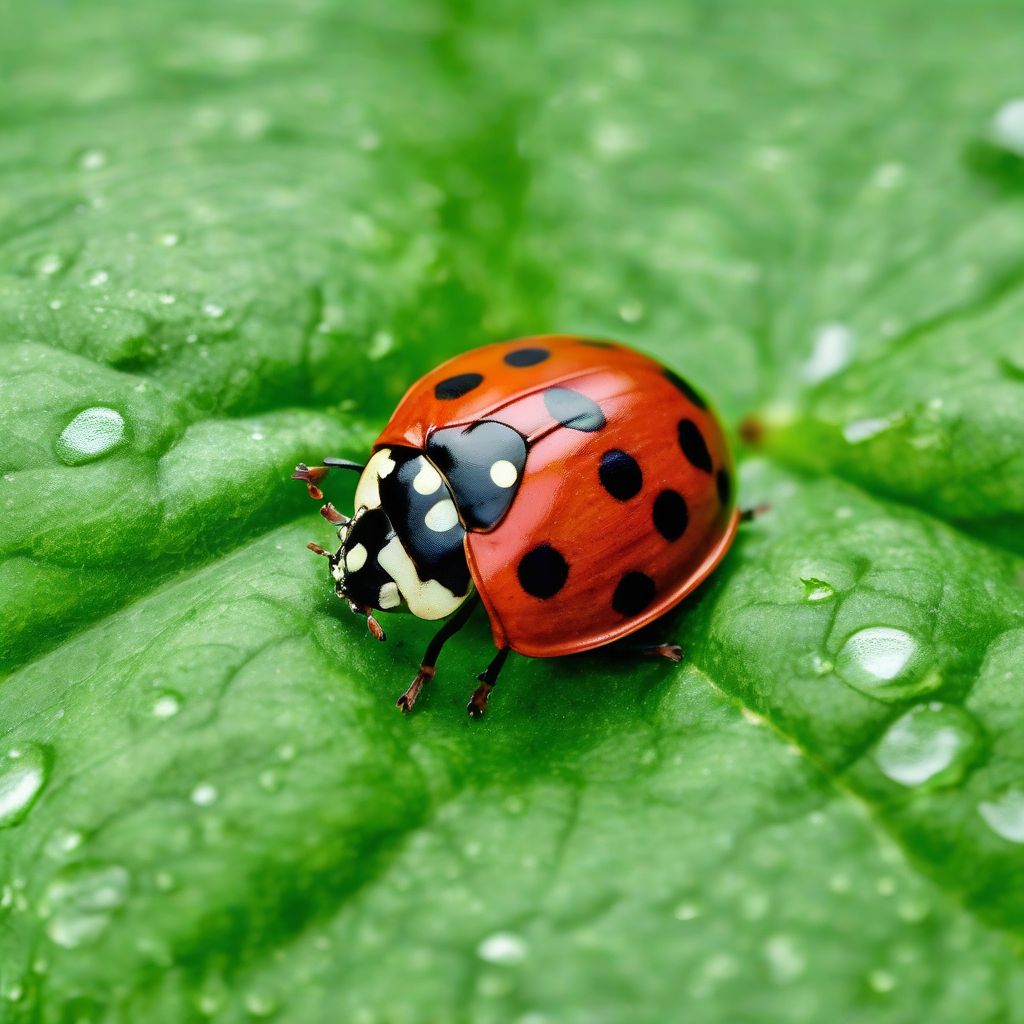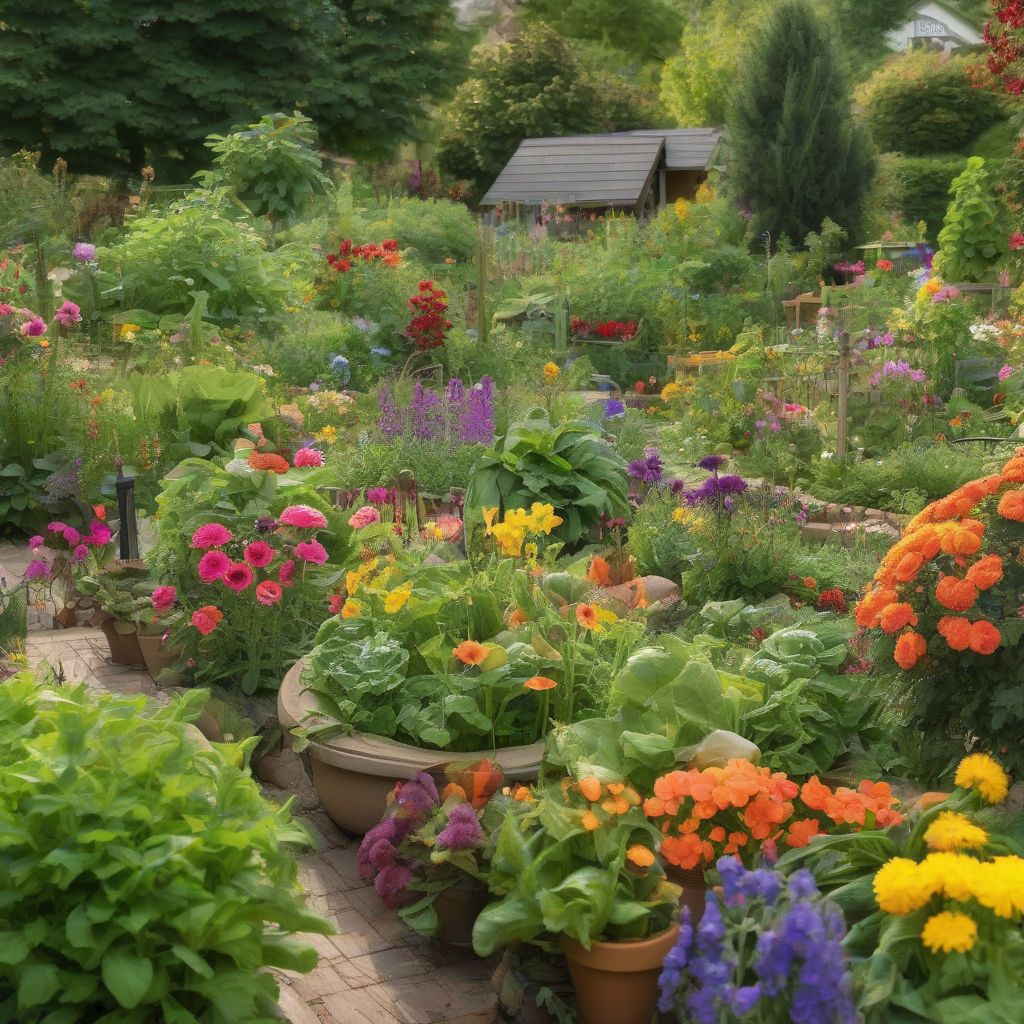Imagine stepping into your garden, greeted by the sweet scent of blooming flowers and the vibrant colors of healthy vegetables. But instead of tranquility, you’re met with holes in your lettuce, aphids on your roses, and a sense of dread about what creatures stirred in the night.
Keeping a thriving garden often feels like a constant battle against pests. But what if I told you there’s a way to win this war without resorting to harsh chemicals that harm beneficial insects, pollute our water systems, and potentially impact our health?
As a nutritionist and meal prep coach, I understand the importance of a natural, holistic approach. Just like nourishing our bodies with whole foods, we can nourish our gardens naturally too. This guide will explore practical, effective, and eco-friendly methods to maintain a pest-free garden, ensuring a bountiful harvest and a thriving ecosystem.
Understanding the Ecosystem of Your Garden
Before declaring war on every bug that crosses your garden path, remember a key principle: a healthy garden is a balanced ecosystem. Beneficial insects like ladybugs, lacewings, and praying mantises are nature’s pest control, feasting on aphids, mites, and caterpillars.
Identifying Friends and Foes
Before reaching for that pesticide, take the time to identify the culprits in your garden. A magnifying glass and a good insect guidebook can be your best friends. Once you’ve identified the pests, you can choose targeted, natural solutions.
 Ladybug on a Leaf
Ladybug on a Leaf
Building a Strong Foundation: Preventative Measures
Prevention is always better than cure. By implementing these strategies, you create an environment that discourages pests from taking hold:
1. Choose the Right Plants
- Companion Planting: Certain plants, when grown together, deter pests. For instance, basil repels tomato hornworms, while marigolds deter aphids and nematodes.
- Pest-Resistant Varieties: Opt for plant varieties known for their resistance to common pests in your region.
2. Practice Crop Rotation
Rotating your crops each year disrupts pest life cycles and prevents them from establishing themselves in your garden.
3. Healthy Soil, Healthy Plants
Just like our bodies, plants need nutrient-rich soil to thrive. Healthy plants are naturally more resistant to pests and diseases. Amend your soil with compost, aged manure, or other organic matter to improve its structure and fertility.
4. Water Wisely
Avoid overhead watering, which can create a humid environment favorable to fungal diseases and slugs. Instead, water deeply at the base of the plants in the morning, allowing foliage to dry quickly.
Natural Pest Control Methods: Fighting Back Naturally
Even with the best preventative measures, pests may occasionally appear. However, plenty of natural and effective solutions can help you regain control without resorting to harsh chemicals:
1. Physical Barriers
- Row Covers: Protect vulnerable seedlings from flying insects with lightweight row covers.
- Copper Tape: Create a barrier around pots and planters to deter slugs and snails.
- Diatomaceous Earth: This natural powder, made from fossilized diatoms, is harmless to humans and pets but deadly to soft-bodied insects like slugs and snails. Sprinkle it around plants or create a protective barrier.
2. Natural Predators
- Attract Beneficial Insects: Plant flowers that attract beneficial insects like ladybugs, lacewings, and hoverflies. These insects are voracious predators of many garden pests.
- Provide Shelter: Birdhouses, insect hotels, and even a simple pile of rocks can provide shelter for beneficial insects and other wildlife that help control pest populations.
3. DIY Sprays and Solutions
- Neem Oil Spray: Derived from the neem tree, this oil disrupts insect life cycles and acts as a natural repellent.
- Garlic Spray: The pungent odor of garlic effectively repels many insects.
- Soap Spray: A simple solution of water and insecticidal soap can be effective against aphids and other soft-bodied insects.
4. Handpicking and Traps
While it might seem tedious, handpicking larger insects like caterpillars and slugs can be very effective. For smaller insects, sticky traps or beer traps (for slugs and snails) can help control populations.
Long-Term Solutions: Creating a Sustainable Garden Ecosystem
Maintaining a pest-free garden isn’t about quick fixes; it’s about creating a healthy, balanced ecosystem that naturally deters pests. Here’s how to foster a sustainable garden:
- Composting: Start a compost pile with kitchen scraps and yard waste. Compost enriches your soil, promoting healthy plant growth and attracting beneficial organisms.
- Mulching: A layer of mulch around your plants helps retain moisture, suppress weeds, and regulate soil temperature, creating a less hospitable environment for pests.
- Water Conservation: Install rain barrels to collect rainwater for irrigation. This conserves water and reduces the need for chemically treated water.
 Thriving Garden
Thriving Garden
[amazon bestseller=”garden pest control”]
Conclusion: Your Garden, Your Sanctuary
Creating a pest-free garden without chemicals is entirely achievable and incredibly rewarding. By understanding the delicate balance of your garden’s ecosystem and implementing these natural methods, you can enjoy a bountiful harvest while creating a haven for beneficial wildlife. Remember, a healthy garden is not about eradicating every last bug but about nurturing a thriving ecosystem where nature finds its own balance.
What are your favorite natural pest control methods? Share your tips and experiences in the comments below!
